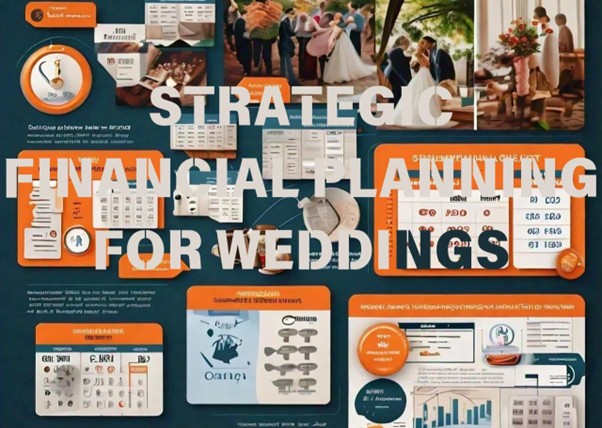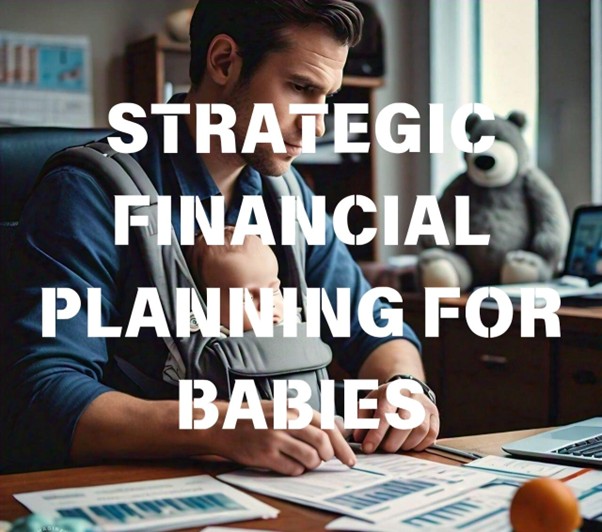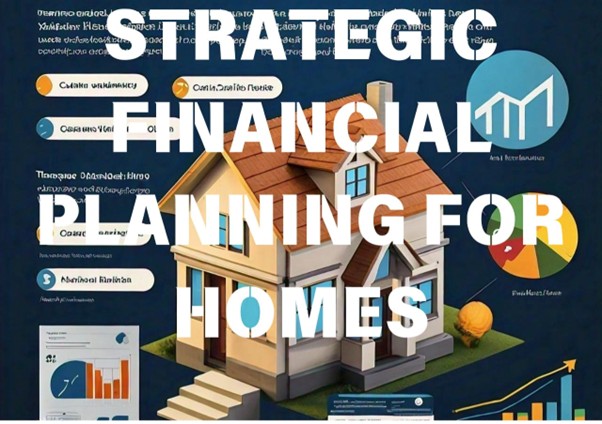FINANCIAL FREEDOM: A STEP-BY-STEP GUIDE TO PLANNING FOR MAJOR LIFE EVENTS.
As a Canada tax expert and a financial advisor in Ontario, I’ve seen many individuals and families face significant financial challenges when navigating major life events. Weddings, babies, and homes are exciting milestones, but they can also be costly and financially overwhelming. In this comprehensive guide, we’ll explore how to strategically plan for these major life events financially, ensuring you’re prepared for the expenses that come with them.
UNDERSTANDING THE FINANCIAL IMPACT OF MAJOR LIFE EVENTS

Before we dive into the planning process, it’s essential to understand the financial implications of these major life events.
Major life events can bring significant changes and challenges, not only emotionally but also financially. Whether it’s getting married, having a baby, or buying a home, these events can have a substantial impact on your financial situation.
1. Getting Married
Getting married can bring joy and excitement, but it also means merging your finances with your partner’s. This can lead to:
- Increased expenses: Combining households, entertaining, and travel can increase your expenses.
- Debt consolidation: You may need to consolidate debt, such as credit cards, student loans, or personal loans.
- Financial goal alignment: You’ll need to align your financial goals, such as saving for a home, retirement, or starting a family.
To prepare:
– Discuss your financial goals and values with your partner.
– Create a joint budget and financial plan.
– Consider merging your bank accounts and credit cards.
2. Having a Baby
Having a baby can bring immense joy, but it also comes with significant financial responsibilities. Consider:
- Increased expenses: Diapers, childcare, food, and healthcare costs can add up quickly.
- Reduced income: One partner may need to take time off work or reduce their hours, leading to a decrease in household income.
- Long-term financial commitments: You’ll need to plan for your child’s education, extracurricular activities, and future financial independence.
To prepare:
– Create a baby budget and plan for increased expenses.
– Consider opening a savings account or 529 college savings plan for your child’s future.
– Review your insurance coverage, including health, life, and disability insurance.
3. Buying a Home
Buying a home can be a significant financial milestone, but it also comes with substantial costs. Consider:
- Down payment: You’ll need to save for a down payment, which can be a significant upfront cost.
- Mortgage payments: Your monthly mortgage payments will likely increase your expenses.
- Maintenance and repair costs: As a homeowner, you’ll be responsible for maintenance and repair costs, which can be unexpected and costly.
To prepare:
– Save for a down payment and closing costs.
– Research and compare mortgage options to find the best rate and terms.
– Consider setting aside a portion of your budget for maintenance and repair costs.
ADDITIONAL TIPS:
– Communicate openly with your partner or loved ones about your financial goals and values.
– Create a budget and financial plan that takes into account your changed financial situation.
– Seek the advice of a financial advisor or a professional if needed.
By being prepared and proactive, you can ensure that your finances remain stable and secure, even in the face of significant life changes.
STRATEGIC FINANCIAL PLANNING FOR WEDDINGS

When it comes to planning a wedding, it’s easy to get caught up in the excitement and overspend. However, with a strategic financial plan, you can ensure that your special day is memorable and affordable.
1. Create a budget: Determine how much you can afford to spend on your wedding and stick to it. Consider all expenses, including venue rental, food, photography, and attire.
2. Prioritize: Identify what’s most important to you as a couple and allocate your budget accordingly. If you’re not concerned about having a large wedding party, consider reducing the number of attendants to save on attire and other expenses.
3. Consider off-season: Getting married during the off-season (usually November to April) can result in significant savings on venue rental and other expenses.
4. Negotiate: Don’t be afraid to negotiate with vendors to get the best price. Many vendors are willing to work with couples to provide discounts or packages.
5. Create a Separate Wedding Fund: Open a separate savings account specifically for your wedding expenses. This will help you keep your wedding savings separate from your everyday spending money.
6. Take Advantage of Tax Benefits: If you’re getting married in Canada, you may be eligible for tax benefits such as the GST/HST New Housing Rebate or the Ontario Seniors’ Public Transit Tax Credit.
7. Consider a Morning or Brunch Wedding: Having a morning or brunch wedding can be a cost-effective alternative to an evening wedding.
8. Keep Your Guest List Small: The fewer guests you have, the less you’ll spend on food, beverages, and rentals.
9. Consider a Destination Wedding: If you have a small guest list, a destination wedding can be a cost-effective and intimate way to celebrate your special day.
10. Review and Revise Your Budget: Regularly review and revise your budget to ensure you’re on track to meet your financial goals.
By following these tips, you can create a strategic financial plan for your wedding and enjoy your special day without financial stress.
Additional Tips:
- Consider having your wedding during the off-season (usually November to April) to save on venue rental and other expenses.
- Look for vendors who offer package deals or discounts for off-season weddings.
- Consider having a smaller wedding cake or dessert table instead of a large, multi-tiered cake.
- Shop for wedding attire during sales or consider renting attire instead of buying.
STRATEGIC FINANCIAL PLANNING FOR BABIES

Having a baby is a significant life event that requires careful financial planning. Here are some strategies to help you prepare:
1. Create a baby fund: Start saving for your baby’s expenses before they arrive. Consider setting up a separate savings account or investing in a tax-free savings account (TFSA).
2. Understand your benefits: If you’re an employee, understand your company’s parental leave policies and benefits. You may be eligible for paid leave or other forms of support.
3. Budget for childcare: Childcare costs can be significant, especially if you’re planning to return to work. Research your childcare options and factor the costs into your budget.
4. Take advantage of tax credits: As a parent, you may be eligible for tax credits such as the Canada Child Benefit (CCB) or the Universal Child Care Benefit (UCCB).
STRATEGIC FINANCIAL PLANNING FOR HOMES

Purchasing a home is a significant financial investment that requires careful planning. Here are some strategies to help you prepare:
1. Check your credit score: Your credit score plays a significant role in determining the interest rate you’ll qualify for on your mortgage. Work on improving your credit score by paying off debt and making on-time payments.
2. Gather your documents: You’ll need to provide documentation such as pay stubs, bank statements, and tax returns to support your mortgage application.
3. Determine your budget: Calculate how much you can afford to spend on a home, including your down payment, closing costs, and ongoing expenses such as mortgage payments, property taxes, and insurance.
4. Consider working with a mortgage broker: A mortgage broker can help you navigate the mortgage application process and find the best interest rate and terms for your situation.
COMMON MISTAKES TO AVOID
When planning for major life events, it’s essential to avoid common mistakes that can lead to financial stress and overwhelm. Here are some mistakes to avoid:
– Not creating a budget: Failing to create a budget can lead to overspending and financial stress.
– Not prioritizing: Failing to prioritize your expenses can lead to wasted money and financial regret.
– Not taking advantage of tax credits: Failing to take advantage of tax credits such as the CCB or UCCB can result in lost income.
– Not considering the long-term implications: Failing to consider the long-term implications of your financial decisions can lead to financial stress and overwhelm.
FREQUENTLY ASKED QUESTIONS
Here are some frequently asked questions (FAQs) on how to strategically plan for major life events financially:
WEDDING PLANNING
- How much should I budget for my wedding?
The average cost of a wedding in Canada is around $30,000. However, this amount can vary depending on the location, number of guests, and other factors.
- What are the most expensive parts of a wedding?
The most expensive parts of a wedding are typically the venue, food, and photography.
- How can I save money on my wedding?
Consider having your wedding during the off-season, reducing the number of guests, and choosing a venue that offers all-inclusive packages.
- Should I prioritize saving for a down payment on a house or paying for my wedding?
It’s generally recommended to prioritize saving for a down payment on a house, as this is a long-term investment.
- Can I use my credit card to pay for wedding expenses?
While it may be tempting to use your credit card to pay for wedding expenses, it’s generally not recommended, as this can lead to debt and high interest charges.
BABY PLANNING
- How much does it cost to raise a child?
The cost of raising a child from birth to age 18 can range from $200,000 to over $300,000.
- What are the biggest expenses associated with having a baby?
The biggest expenses associated with having a baby are typically childcare, food, and healthcare.
- How can I prepare financially for the arrival of a baby?
Consider opening a registered education savings plan (RESP) to save for your child’s education, and take advantage of tax credits such as the Canada Child Benefit.
- Should I prioritize saving for my retirement or my child’s education?
It’s generally recommended to prioritize saving for your retirement, as this will provide you with a steady income stream in your golden years.
- Can I claim my baby’s expenses on my tax return?
Yes, you may be eligible to claim certain expenses related to your baby, such as childcare costs and medical expenses.
HOME BUYING
- How much do I need for a down payment on a house?
In Canada, you’ll typically need to save at least 5% of the purchase price for a down payment.
- What are the closing costs associated with buying a house?
Closing costs can range from 1.5% to 4% of the purchase price and may include expenses such as land transfer taxes and lawyer fees.
- How can I determine how much house I can afford?
Consider using the 28/36 rule, which suggests that you should spend no more than 28% of your gross income on housing costs and no more than 36% on total debt payments.
- Should I prioritize paying off my mortgage or saving for retirement?
It’s generally recommended to prioritize paying off high-interest debt, such as credit card balances, before focusing on paying off your mortgage or saving for retirement.
- Can I claim my mortgage interest on my tax return?
In Canada, you may be eligible to claim the Home Buyers’ Plan (HBP) on your tax return, which allows you to withdraw up to $35,000 from your registered retirement savings plan (RRSP) to purchase a home.
CONCLUSION
Strategically planning for major life events financially is crucial to ensuring that you’re prepared for the expenses that come with them. By understanding the financial implications of weddings, babies, and homes, and by creating a comprehensive financial plan, you can navigate these significant life milestones with confidence and financial stability.
Key Takeaways
1. Create a comprehensive financial plan that takes into account your income, expenses, debts, and financial goals.
2. Prioritize your spending and allocate your budget accordingly.
3. Take advantage of tax credits and benefits available to you.
4. Consider seeking the advice of a financial advisor or planner.
5. Review and revise your financial plan regularly to ensure you’re on track to meet your financial goals.
CALL TO ACTION
If you’re facing a major life event and are unsure about how to plan for it financially, consider booking a consultation with a financial advisor or planner. They can help you create a personalized financial plan that takes into account your unique financial situation and goals.
By taking control of your finances and strategically planning for major life events, you can ensure that you’re prepared for the expenses that come with them and can achieve financial stability and success.
Book a Consultation
Ready to take control of your finances and strategically plan for your major life events? Book a consultation with a financial advisor or planner today! [email protected]
Stay Financially Fit
By staying financially fit and strategically planning for major life events, you can achieve financial stability and success. Book a consultation today and take the first step towards a brighter financial future!
ABOUT AUTHOR
Shanel John is a dedicated Certified Public Accountant (CPA) at G.L.H. Accounting, specializing in Income Tax with 10 years of experience. Based in Brampton, Ontario, Canada, Shanel offers expertise in tax preparation, financial accounting, and advisory services. A certified QBO Pro Advisor, Shanel’s decade-long experience and knowledge make her a trusted figure in the accounting field.
ADDITIONAL RESOURCES
The Financial Planning Association of Canada: https://www.fpassociation.ca/
Benefits for couples: https://www.canada.ca/en/public-services-procurement/services/pay-pension/pay-administration/access-update-pay-details/pay-changes-in-your-life/getting-married-reaching-common-law-status.html
Canada Child Benefits: https://www.canada.ca/en/revenue-agency/services/forms-publications/publications/t4114/canada-child-benefit.html
Housing Benefit: https://www.canada.ca/en/services/benefits/housing.html The Home Buyer’s Plan: https://www.canada.ca/en/revenue-agency/services/tax/individuals/topics/rrsps-related-plans/what-home-buyers-plan.html

